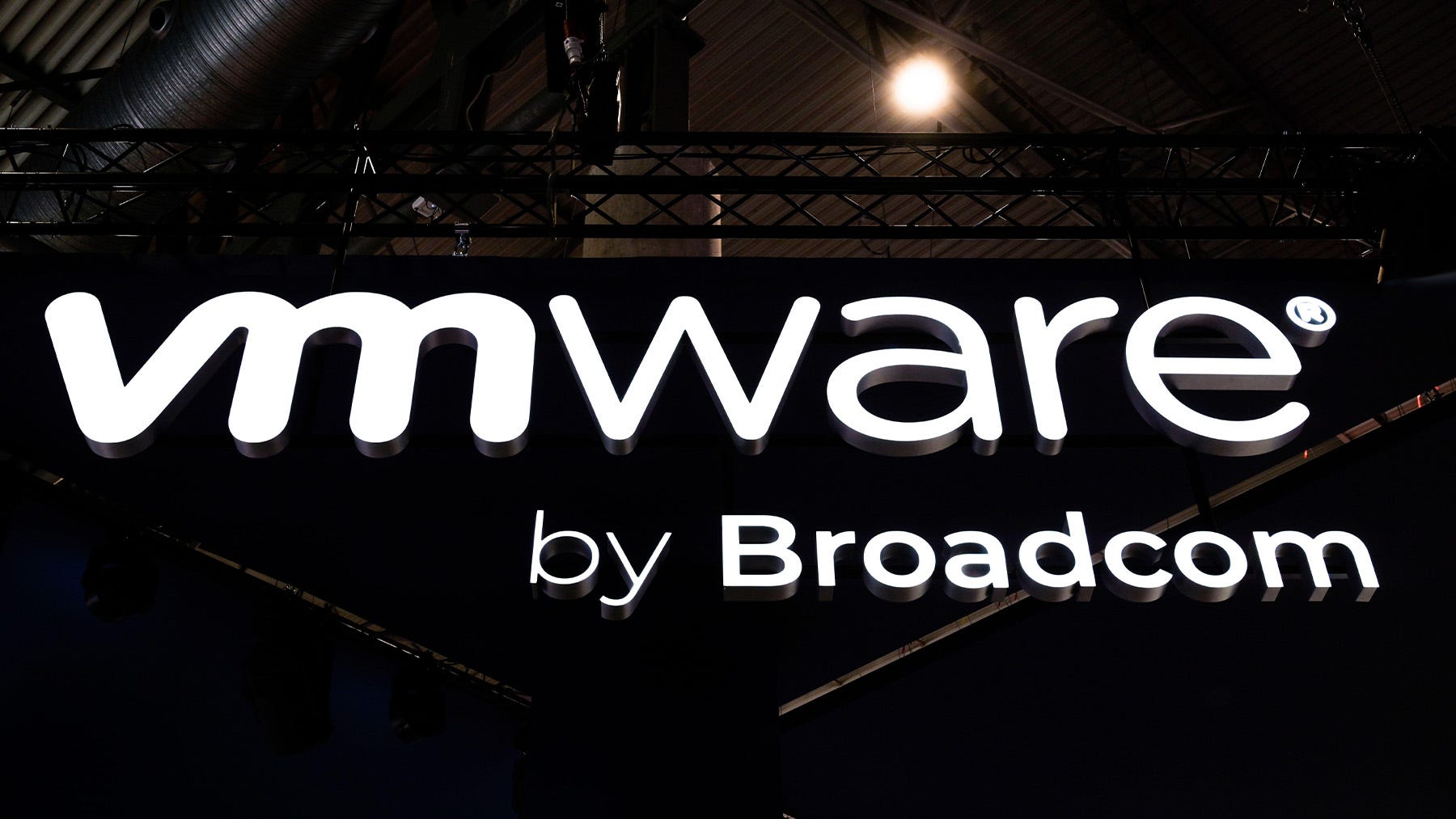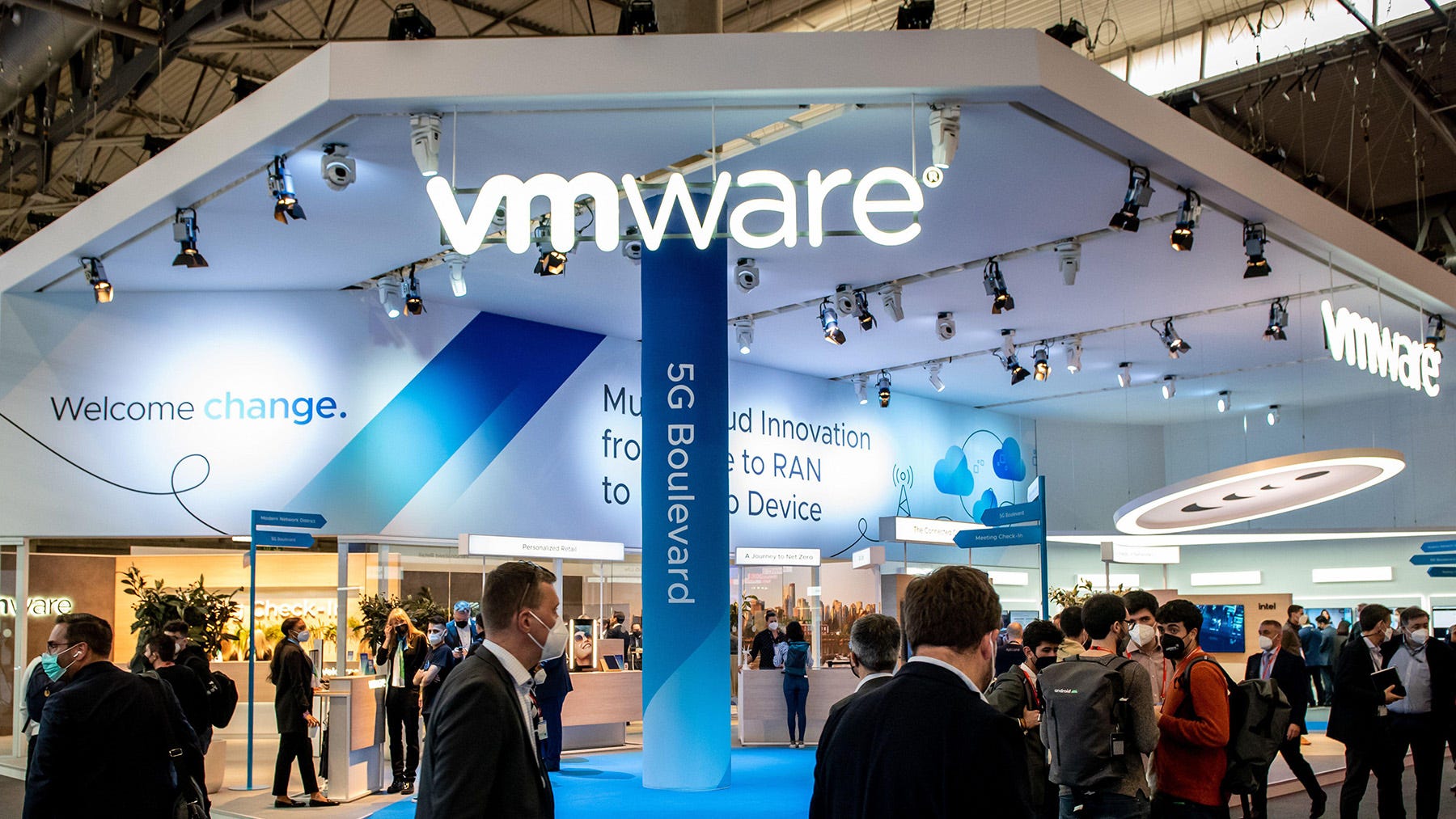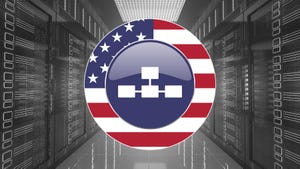Broadcom Unveils New VMware Private Cloud Software for Data Center OperatorsBroadcom Unveils New VMware Private Cloud Software for Data Center Operators
In the first VMware Explore conference since Broadcom acquired VMware, executives said its next-gen products will help enterprises streamline their data center operations. After months of uncertainty, will customers stay loyal?

Broadcom has announced its forthcoming next-generation flagship software, VMware Cloud Foundation 9. The news marks another step in the company’s strategy to simplify and unify VMware products and make it easier for enterprises to deploy and manage a private cloud in their data centers.
After several months of uncertainty and “confusion” since Broadcom closed its acquisition of VMware, analysts said this week’s VMware Explore conference is a crucial opportunity for the company to talk directly to its customers. The question is: Will enterprises hear the message?
VCF 9: New Features, Streamlined Solution
VMware Cloud Foundation (VCF) is VMware’s private cloud platform that combines virtualized compute, storage, and networking with cloud management services and allows organizations to run and manage their virtualized and containerized workloads.
Previously, VMware had four business units in charge of building the four main products that make up VCF. But earlier this year, Broadcom said it consolidated those units in charge of vSphere, vSAN, NSX, and Aria into one VCF division, so the combined team can build a better, integrated solution.
At the VMware Explore 2024 conference in Las Vegas today (August 27), Broadcom executives announced more details of the new VCF solution.
New features include a self-service cloud portal for users to provision services and the consolidation of more than a dozen management consoles to two management consoles – one for operations and the other for automation.
While customers can still use the different parts of VCF piecemeal, Broadcom executives are encouraging its enterprise customers to fully deploy VCF 9 when it becomes available, so they can build a private cloud that eliminates the complexity of managing compute, storage, and networking in silos.
Essentially, VCF 9 aims to allow enterprises to modernize their data center infrastructure and create a seamless cloud experience on-premises. They can get the scalability, agility, and management capabilities they’ve come to expect from the public cloud, but they would do it through a private cloud where they can secure their data, Broadcom executives said.
The company also announced new services and educational opportunities to assist customers with implementation.
“It’s about virtualizing your data center, virtualizing your storage, your network, your compute, the automation and operations that you need as an administration team to be able to deliver a service, and of course, the developer productivity that comes with an agile cloud operating system,” said Paul Turner, vice president of products for Broadcom’s VCF Division, in a media briefing.
During a speech at VMware Explore today, Broadcom CEO Hock Tan explained that the company is focusing on private cloud because enterprises are increasingly moving public cloud workloads back in-house. The reasons are the cost of public cloud and the complexity of having to manage another platform and the need to meet regulatory and compliance requirements, he said.
“The future of the enterprise is private cloud (and) private AI fueled by your own private data. It’s about staying on-prem and in control,” Tan said. “Of course, you continue to use public cloud for elastic demand and bursting workloads, but in this hybrid world, the private cloud is now the platform to drive your business and your innovation.”

Broadcom completed its acquisition of VMware in November 2023
Broadcom’s Pitch to VMware Customers is ‘Critical’
The VMware Explore conference this week is important because it’s the first time Broadcom will speak directly to customers it made sweeping changes to software licensing and its product portfolio, said Matt Kimball, principal data center analyst at Moor Insights & Strategy.
After Broadcom acquired VMware last November, Broadcom caused confusion among some customers when it announced that it was ending perpetual licenses and switching to a subscription model.
The company also announced that it was streamlining nearly 9,000 product SKUs and 160 product bundles to two primary bundles: VCF and VMware vSphere Foundation, which is designed for smaller and mid-sized customers and includes vSphere server virtualization software, Tanzu Kubernetes Grid, and Aria operations management software.
“What got lost in all the noise was the story that Broadcom was trying to tell, which is, ‘Look, we’re trying to take your data center and bring the modernization that you need if you want to do all these cloud and AI things. And if you want to do hybrid, multi-cloud and want to do it securely, we’re going to deliver those tools’,” Kimball said in an interview with Data Center Knowledge.
He added: “What you are seeing here is VMware’s first opportunity to talk directly to customers, and the market more broadly, that, ‘This is what we said we would do, and this is what we’ve done so far’. It is critical that they go out with a compelling set of announcements and products… that they are moving toward that integrated single platform, and it looks like they’ve done that with VCF.”
From an IT operational standpoint, Kimball likes what Broadcom is doing.
“This is exactly what enterprise customers are looking for: a single platform that allows enterprise IT organizations to deliver services faster, cheaper, more efficiently, and more securely,” he said.
Gary Chen, IDC’s research director of software defined compute, agrees that the messaging that Broadcom gives to its customers at the VMware Explore conference is critical. “They have to get it right because this is a big debut kind of moment,” he said.
Because it’s been less than a year since Broadcom took over VMware, the conference this year is more about previewing future products and showing that the company is progressing toward its goal of an integrated VCF product.
“This year’s show is for Broadcom to give customers some idea of where they are headed. The bigger test is next year,” Chen told Data Center Knowledge. “Next year’s conference will be a ‘show me’ moment. They have to have something solid to show for their efforts.”

VMWare’s VCF 9 will include a raft of new features to streamline data center operations
Cloud 9: Advanced VCF Features
Broadcom has not announced any dates for delivering VCF 9. However, it is known that the next-generation product will have a raft of new features including multi-tenant capabilities, unified security management, and distributed intrusion detection and prevention capabilities.
It will also feature advanced memory tiering with NVMe, which optimizes memory management by offloading ‘cold’ data to NVMe storage while keeping ‘hot’ data in DRAM, a Broadcom spokesman said.
This results in a 40% improvement in server consolidation over the previous VCF iteration, allowing organizations to run more workloads with fewer servers. Memory tiering with NVMe also reduces latency and accelerates data throughput, ensuring that data-intensive applications like AI, databases and real-time analytics perform well, the Broadcom spokesman said.
As part of VCF 9, Broadcom is also introducing VCF Advanced Services, a library of tools and technologies that enterprises can use to address their private cloud needs. It includes advanced security, data services, workload automation, load balancing, disaster recovery, edge orchestration, private AI services, and container operations.
To simplify adoption, Broadcom will expand its VCF Import capability. This will allow customers to easily migrate their existing implementations of vSphere, vSAN, NSX, vDefend, and Avi Load Balancer to VCF 9.
Broadcom also announced four services to assist enterprises with adopting VCF 9: Private Cloud Maturity Model, which will help customers assess their current private and hybrid cloud capabilities and provide guidance on how to implement VCF 9; educational workshops through a JumpStart Program; free digital and instructor-led training; and a new VCF certification.
Analysis: Will Customers Stay Loyal to VMware?
As VMware customers converge on the VMware Explore conference this week, the question is whether customers will embrace what Broadcom is selling. Some customers are worried that it will cost more to use VMware.
In February, when it became clear that its product and software licensing changes caused some confusion in the market, Broadcom VCF Division executives went on a media tour to clarify its strategy and attempt to ease their customers’ concerns.
At the time, VCF executives explained that the changes would result in more innovation and value for customers, that the company’s move to a subscription model aligns with the industry standard, and that the company was not eliminating products as some customers feared. VMware products simply would be sold in packages and not separately.
VCF Division executives earlier this year also stated that Broadcom has cut the price of VCF in half, from $700 per core to $350 per core, which results in cost savings. They said customers that previously used two VMware products, such as vSphere and vSAN should see comparable pricing in the bundled solution, but enterprises that only use vSphere would face a new price increase.
Today, VMWare customers who are anxious about pricing changes are considering all their options, including staying with VMware or potentially migrating to other solutions, analysts say.
Forrester analyst Naveen Chhabra told Data Center Knowledge that some VMware customers he’s talked to face a four to seven-times price increase. “I’ve talked to hundreds of VMware customers so far, and they are eager to find viable alternatives that they can depend on at a reasonable price,” he said.
The issue is there’s not one vendor that can offer a complete one-to-one replacement because of the breadth and depth of VMware’s product portfolio, said Forrester analyst Tracy Woo. VMware’s competitors include Nutanix, IBM Red Hat, Microsoft and many others, depending on product.
Chen at IDC said he speaks with VMware customers several times a week who are also concerned about pricing. Some customers are up for renewal this year, while others have perpetual licenses for two to four more years, so they have time to research and decide what to do before they are forced into VMware’s subscription pricing.
“Some customers… want to move off of VMware,” Chen said. “Others are very committed to VMware because they’ve built their whole careers on VMware.”
The customers Chen has spoken to are taking inventory of their VMware usage and trying to plan ahead and figure out how the new pricing will affect them. In the meantime, they are exploring alternative solutions. They are also researching the cost of migration and are mindful that migrating to other platforms also carries risk, he said.
“The customers we’re talking to are working through all this stuff. It’s still kind of the early stages, and they haven’t made any decisions yet,” Chen said.
About the Author
You May Also Like








